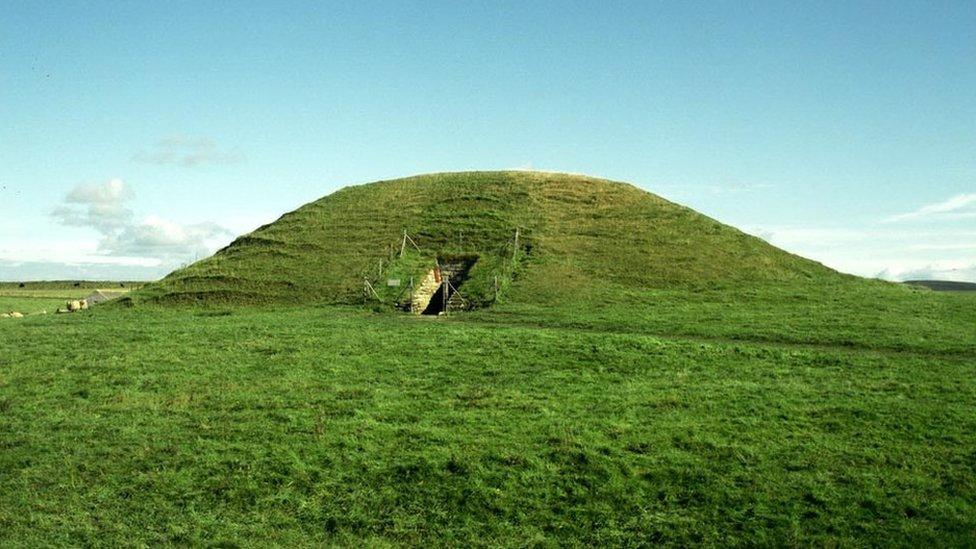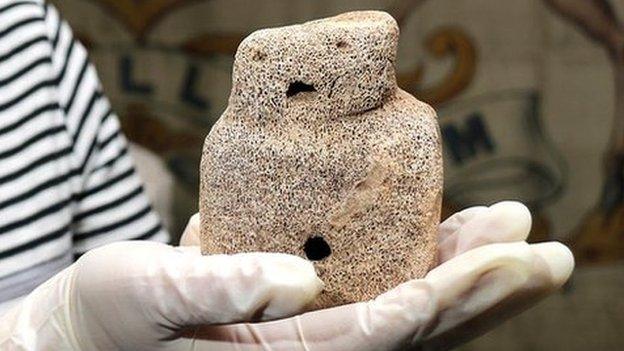Rodents eaten by Neolithic Orcadians, research suggests
- Published
Burnt vole bones suggest that the animals were roasted
A new study has suggested that the Neolithic people of Orkney ate rodents as part of their diets.
Researchers came to the conclusion after examining bones found at Skara Brae.
The authors of the study believe that burnt vole bones suggest they were roasted before being eaten.
Rodents are consumed by humans in other parts of the world but this is the earliest evidence of them being used as a food source in Europe.
Although rodent's bones are often found in archaeological sites, there are not many studies of their impact on ancient societies.
Researchers from the National Museums of Scotland examined about 60,000 bone fragments at Skara Brae.
'Human refuse'
They found that most of the bones were concentrated in household waste from the centre of the settlement.
The accumulation and nature of burnt bones, incorporated over an extended period within deposits of household waste, indicated that rodents were used as a nutritional resource and may have been the subject of early pest control.
Dr Jerry Herman, senior curator of mammology at the National Museums Scotland, led the research.
He told the Good Morning Scotland programme: "We went through a process of deduction and what we found that the material within the site, within the dwelling houses at Skara Brae, there were far more of these field voles - which is small grassland rodent that live in the pastures - and there were far more of them in the material from the site than from areas that were excavated outside the site.
"That kind of showed us that they had been accumulated there somehow.
"Because they were spread through the human refuse, along with other household waste over hundreds of years, we concluded that it wasn't animals that were depositing them there, it was actually the people that lived there.
"Finally, what we found is that quite a lot of them had evidence of burning on them, like they'd been roasted on the fire, and that gave us the clue that they were eating them rather than just getting rid of them because they were pests."
The research has been published by the Royal Society.
- Published26 September 2016

- Published15 June 2016
